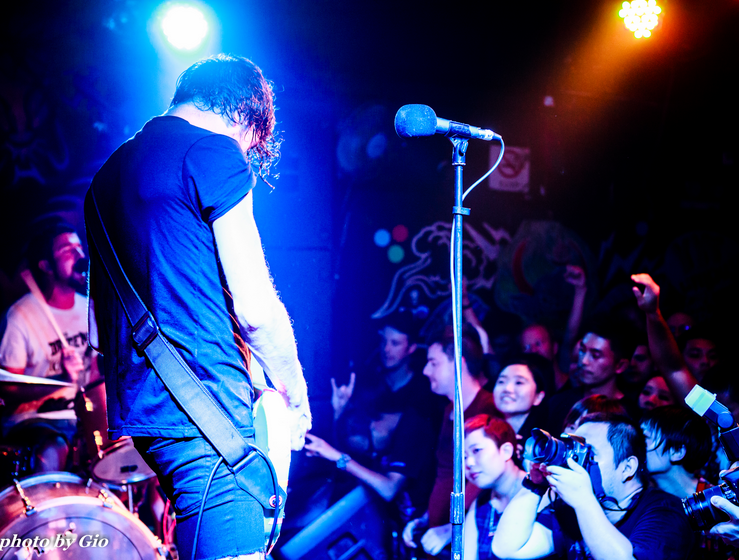It’s always encouraging to see Shanghai’s music industry garner some outside attention. Australia’s Tonedeaf music blog recently posted a bit of a mercurial feature that gives a broad overview of everything from live venues, to where to buy records. There are even a few museum recommendations if you’re interested in musical objets d’art. Tonedeaf’s preview of Shanghai’s musical talent is predictably Western slanted, with Maybe Mars stalwarts Duck Fight Goose being featured alongside X is Y and quirky duo Death to Giants, who’s live set draws on varying degrees of mystery, wonder and terror.
You can read the original article here.
All in all it serves as a great entrée, but ignores a lot of the good work being done by local level artists and promoters, only just skimming the surface of what is really happening here. Particularly noticeable is the lack of attention given to the electronic community, a significant oversight considering that this is where a lot of the most interesting work is being done.
Student communities play an obvious role in the growth of local music scenes, but from personal experience it seems that in Shanghai, the foreigners are the catalysts, encouraging the development of social clubs or associations where minds can meet, experimentation is encouraged, and drunken exploits take place. All the while, the native students are busy trying to push themselves forwards in the crazy and competitive world of Chinese academia (and eventually the job market).
BBC Radio 5 also brought some attention to the scene here with a radio show that asks ‘What Do Chinese Singers Rap About’. Predictably they take this as an opportunity to whittle on about the piracy situation over here. DJ Ronnie Shao gives a break down of the censorship situation, suggesting that as the authorities impose themselves on artists’ freedom, this promotes the development of more creative means of self-expression. But this has happened before. Anyone familiar with Brazil’s military regime during the 70s-80s will know that media censorship was heavily imposed to maintain control, resulting in big artists like Caetano Veloso and Gilberto Gil fleeing the country, crafting their skills abroad, and returning as heroes (Gil ended up as Brazil’s Minister of Culture, serving from 2003-2008). Now China’s artist’s have the Internet at their disposal, they have no shortage of means of getting their messages across.
Hopefully it won’t be long before China’s music industry is acknowledged as being more than a copycat industry. It’s got it’s own heart and soul, its own voice, and will play an essential role in moving the global Chinese population forwards.
